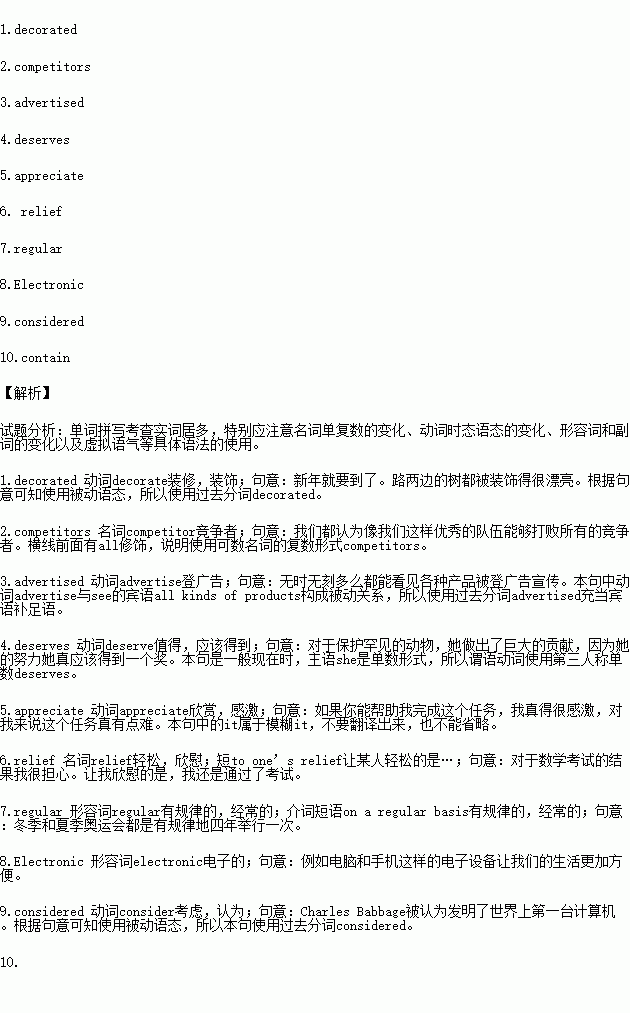题目内容
单词拼写
1.New Year’s Day is drawing near. The trees on both sides of the roads are beautifully ________________(装饰).
2.We all believe that a team as good as ours should be able to beat all the other ________________ (竞争者) .
3.Every day, almost everywhere, we can see all kinds of products _______________(广告).
4.She has made such great contributions to the protection of rare animals. She really ______________(值得) a reward for her efforts.
5.I would a_____________ it if you could help me with this task. It’s really a bit too hard for me.
6.I worried so much about the result of my maths exam. Much to my r_______________, I passed it.
7.The Winter and Summer Olympics are both held every four years on a r_________________ basis.
8.E______________ devices, such as computers and cell phones, have made our life so much more convenient.
9.Charles Babbage is generally c_______________ to have invented the first computer.
10.We are advised by the doctor to take more fruits like apples and oranges, which c___________ much vitamin C.
 培优好卷单元加期末卷系列答案
培优好卷单元加期末卷系列答案
